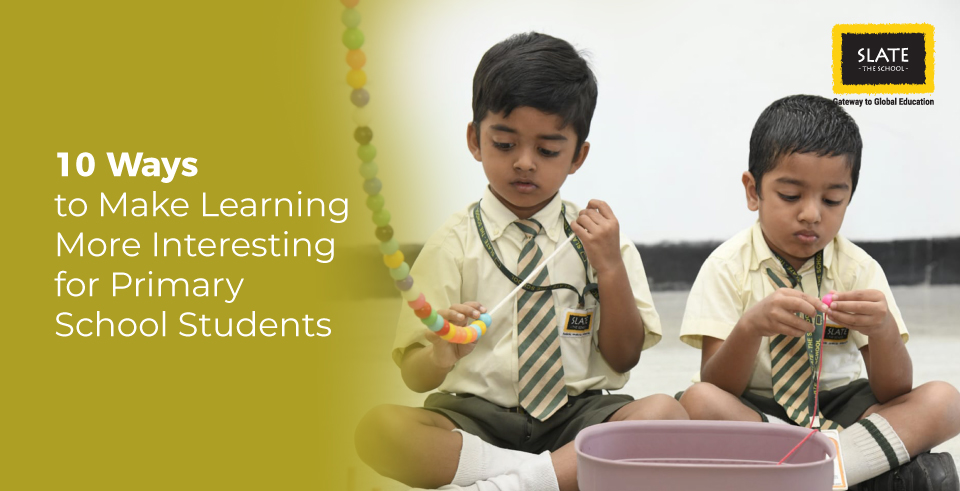Primary education is essential in building the foundation for a child to learn and develop academically and personally. Schooling in the early years of life is not merely about learning letters and digits but about fostering curiosity, creativity, and self-confidence. Parents who are looking for primary school admissions usually prefer schools that provide stimulating classrooms and interactive learning.
Whether via the Cambridge curriculum or other organised courses, emphasis is given to retaining students’ interest and enthusiasm for their daily studies. The majority of the Best Primary Schools in Hyderabad have implemented new approaches to making the learning experience fun so that children acquire a solid grasp of academic abilities.
The following are 10 functional and efficient means of making learning more exciting for primary school children:
1. Use Interactive Teaching Methods
Children like learning when they are actively involved. Rather than mere simple lectures, teachers can employ the use of stories, role-playing, and groupings. This approach makes it easier for children to recall lessons while strengthening comprehension.
2. Increase Classrooms’ Use of Visuals
Rather than depending solely on textbooks, teachers can make use of charts, flashcards, diagrams, and storyboards. The Cambridge curriculum tends to use such devices in order to simplify abstract concepts and make them memorable. Visual learning facilitates children in understanding difficult concepts with ease while maintaining their interest intact.
3. Link Lessons to Real-Life Examples
Kids learn more effectively when they can connect classroom instruction with what they observe in the world. Let’s consider a lesson on addition in math. Counting toys, fruits, or items in the classroom could be a lesson on addition. This makes learning meaningful and enjoyable.
4. Promote Hands-On Learning
Primary education needs to extend beyond books. Science experiments, art, and model-making activities provide learners with chances to play around with ideas in real life. These activities improve problem-solving skills and help children to consolidate knowledge into long-term memory.
Also Read: 100 Science Quiz Questions and Answers for Kids
5. Encourage a Creative Environment
An innovative classroom enables students to be themselves. Teachers may incorporate drawing, drama, or music into lessons daily. Cambridge schools tend to couple arts and academics to balance learning and creativity.
6. Reward and Recognise Efforts
Appreciating a student’s effort, however slight, keeps them encouraged. Certificates, stars, or even kind words of appreciation make children feel appreciated. Reward systems in many of the Best Primary Schools in Hyderabad are confident builders and participation inducers.
7. Encourage Group Learning
Teamwork develops communication and social skills. Group projects, debates, or quizzes facilitate teamwork and make learning exciting. Team learning also develops leadership and peer instruction.
8. Merge Play and Learning
Play learning is an effective strategy in elementary education. Puzzles, learning games, and outdoor activities foster learning while children enjoy themselves. Play also makes difficult concepts easier to understand when taught using interactive games.
9. Foster Reading Culture
Reading books, magazines, and suitable literature broadens vocabulary and understanding. Engaging libraries where children make up stories or read in circles further encourages creativity. Reading also develops concentration and analytical capacity, essential for securing academic success in the long term.
10. Establish a Supportive Learning Environment
Kids develop best when they are accepted by teachers and students. Primary school admissions schools emphasise providing safe and healthy surroundings where students are comfortable asking questions. This environment promotes engagement and confidence-building.
Conclusion
Engaging primary school pupils in learning is a task that needs creativity, patience, and innovative strategies. From interactive learning to play-based interventions, all approaches keep the children engaged and curious. Parents seeking primary school admissions need to ensure that schools strike a balance between academics and co-curricular activities. The Cambridge curriculum and other similarly structured programs adopted by the Best Primary Schools in Hyderabad set international standards for all-around education.

